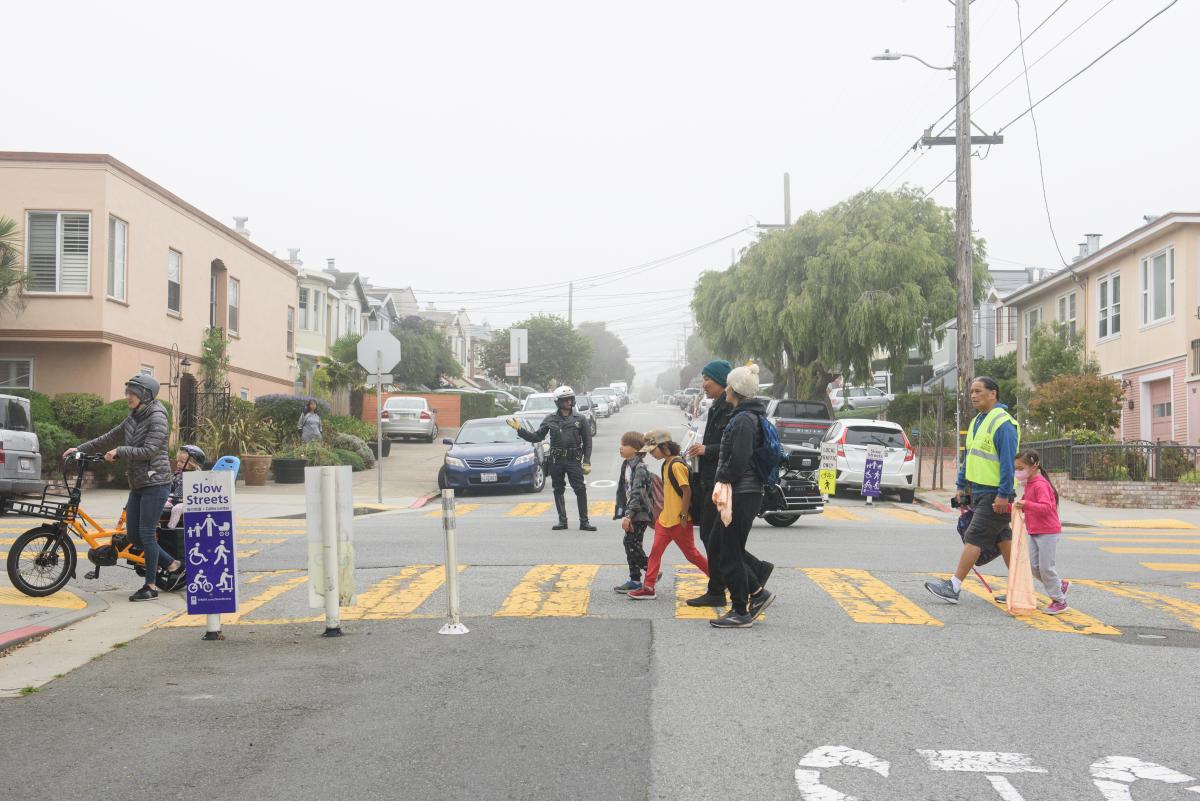By Eillie Anzilotti

Slow Streets provide safe travel for children, families, wheel users, older adults, persons with disabilities and the entire community
The success of Slow Streets depends on everyone working together to keep these spaces safe and joyful.
On Tuesday, December 6 the SFMTA Board of Directors approved an ongoing, post-pandemic Slow Streets program for San Francisco. That means that Slow Streets are here to stay!
We recognize that there are a lot of questions about how to use Slow Streets. To answer them, we created a fact sheet in English, Spanish, Chinese, Russian, and Filipino. You can find that fact sheet linked here.
The main thing to remember is: Everybody is welcome, and please go slow!
Slow Streets create safe corridors for people who prefer not to drive, while preserving parallel arterial streets for vehicles. On Slow Streets, kids can walk and bike themselves safely to school, families can run errands together by bike, and people with disabilities can find safe spaces to navigate their communities.
Whether you are walking, rolling, riding a bicycle, or driving, please watch out for and be kind to your fellow Slow Street users. These streets are community spaces, and basic decency and consideration will go a long way.
In general, we ask that communities make sure Slow Streets can still function as active roadways. That means keeping decorations out of travel lanes, and not adding any hard-to-move items, like furniture, to the streets. If you want to host an event that requires the full use of a street, the Slow Streets and the SFMTA Special Events teams are happy to help. Our program team is always available to discuss and respond to any of your questions.
Since Slow Streets were first introduced at the beginning of the COVID-19 pandemic, they have created safe, shared community spaces on residential streets across San Francisco. Slow Streets are an essential part of how San Francisco will meet its Vision Zero and Climate Action goals. SFMTA data shows a drop in collisions on Slow Streets, which means they’re safer for all users. And having safer streets means more people are encouraged to bike, walk, and roll to get around.
The program will be able to expand to meet community needs and contribute to a growing network of streets that are safe and welcoming to people of all ages and abilities. While the Board initially approved 16 corridors for inclusion, more will be added in the future.
We look forward to expanding the program and offering more ways for communities to activate their Slow Streets. Keep an eye out for news and opportunities by subscribing for updates at SFMTA.com/SlowStreets!
Published December 08, 2022 at 01:39AM
https://ift.tt/TrmLSqO
Comments
Post a Comment